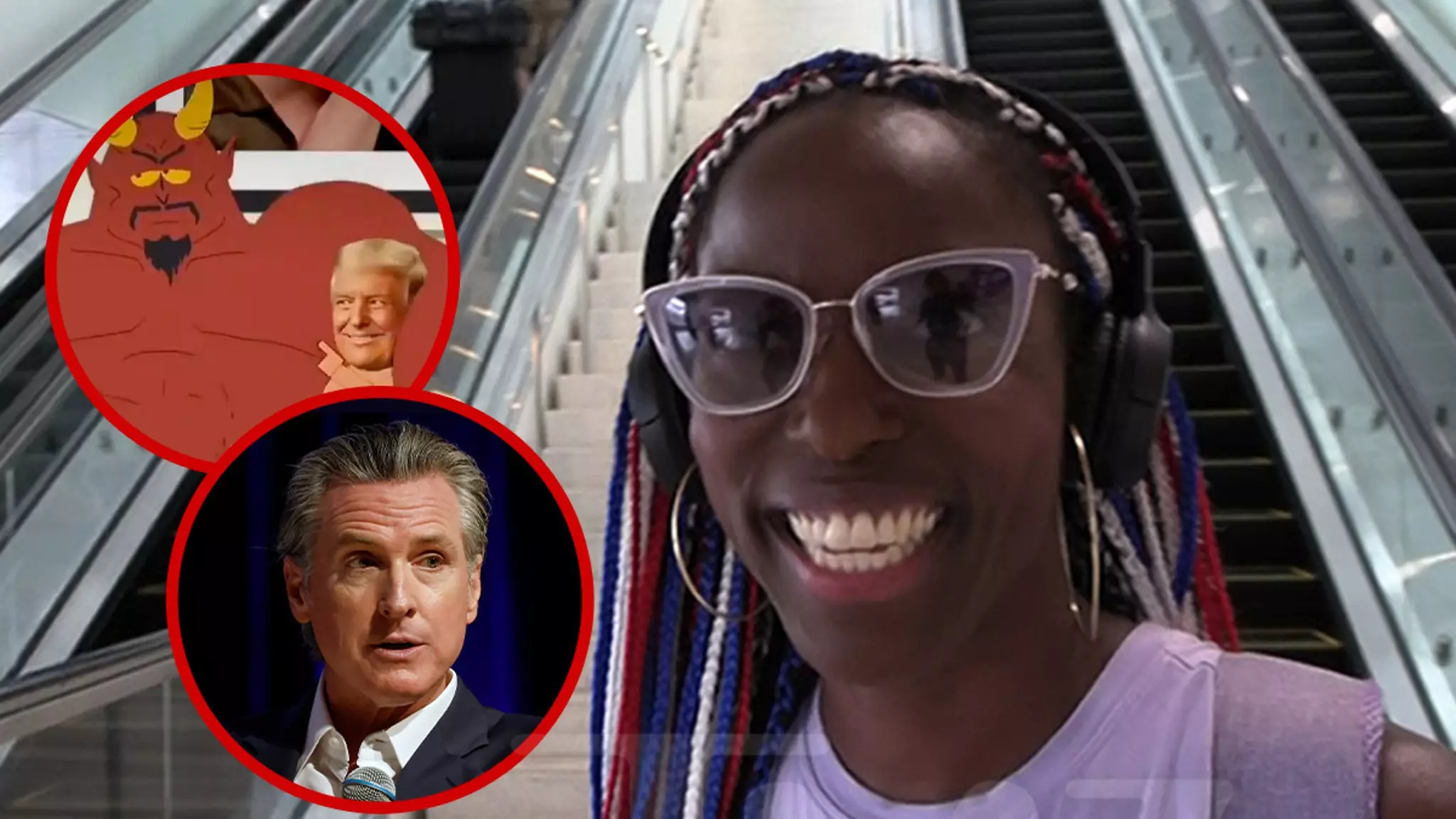In an era where political polarization seems to define much of public discourse, satire emerges as a vital force for questioning authority and exposing societal flaws. Shows like “South Park” exemplify this trend by delivering sharp, unfiltered commentary that spares no one—be they left or right. While some viewers may dismiss such humor as mere provocation, it arguably serves as a mirror reflecting the absurdities and contradictions within our political landscape. Janeshia Adams-Ginyard’s appreciation for the show underscores a broader truth: satire can stimulate critical thinking, even when it pokes fun at familiar figures or ideologies.
The Dual Edges of Political Comedy
What makes “South Park” distinctive is its egalitarian approach to satire; it targets all facets of society with equal vigor. Adams-Ginyard’s endorsement of the series’ bluntness suggests a recognition that comedy has the power—and responsibility—to challenge both conservative and progressive extremes. However, this approach isn’t without controversy. Critics argue that such satire can border on divisiveness or insensitivity, especially when it touches on sensitive political figures or issues. Yet, the actress’s perspective reveals a conviction that humor isn’t meant to exclusively comfort—it should hold a mirror to uncomfortable truths, regardless of political affiliation.
The Cultural Significance of Humor in a Divided Nation
The debate over what qualifies as acceptable comedy is itself symptomatic of a nation grappling with its identity. Adams-Ginyard’s assertion that conservatives often have a better sense of humor than some leftists can ignite a lively discussion about free expression. Her comments highlight a paradox: while comedy is meant to break barriers and challenge perceptions, it often encounters censorship from those who feel their beliefs are undermined. The fact that she advocates for figures like Gavin Newsom to be targeted by satire illustrates how these cultural conversations are vital in maintaining a dynamic, reflective society. Comedy, after all, can serve as a form of activism—an outlet for dissent and a catalyst for dialogue.
Humor as a Cultural Force and Its Limitations
Adams-Ginyard’s take on the backlash aimed at “South Park” epitomizes a broader resistance to the idea that comedy should be sanitized or limited by political correctness. Her belief that the show remains relevant because it’s funny underscores an essential truth: humor’s ultimate strength is its ability to provoke thought while entertaining. Yet, this is where critics often step in, arguing that satire can cross lines and reinforce divisions. The ongoing clash over what is acceptable in comedy exposes a fundamental tension: should humor be constrained to avoid offending, or should it embrace its role as a disruptive, unfiltered voice? Adams-Ginyard clearly favors the latter, asserting that the true power of satire lies in its honesty—even if that honesty is uncomfortable.
The Shifting Landscape of Public Discourse
Finally, Adams-Ginyard’s comments on the changing late-night TV scene reflect the broader evolution of public entertainment and its cultural impact. Her enthusiasm about the end of Stephen Colbert’s era and her hope for other talk show cancellations reveal an underlying desire for more provocative, less scripted content that challenges the status quo. While not everyone may agree with her perspective, her stance emphasizes that comedy and satire remain crucial tools for societal reflection. As we navigate through polarized opinions and conflicting narratives, the enduring role of humor as a platform for truth-telling becomes ever more apparent—whether one agrees with the content or not.
Adams-Ginyard’s outspoken views serve as a reminder that comedy’s true potential lies in its fearless ability to confront uncomfortable realities, fostering a culture of dialogue, skepticism, and growth.

Leave a Reply